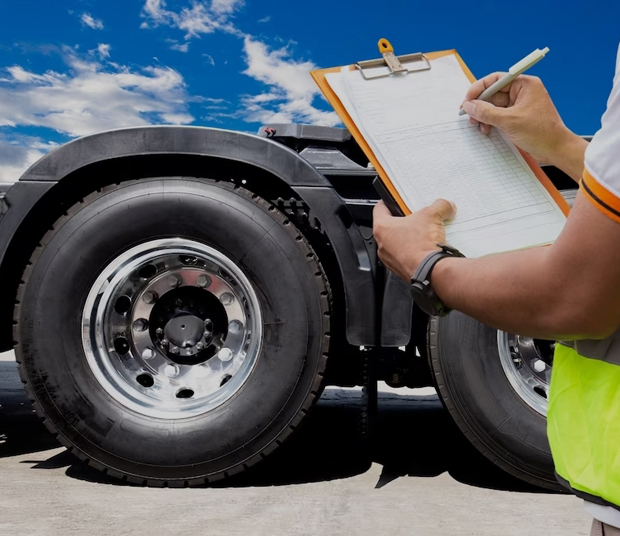How To Manage the Driving Condition
Tire Management for Optimal Performance
Do tires affect your vehicle’s performance?
In discussing the performance of any vehicle, the engine is of first importance. Transmission, torque, and horsepower are key factors in determining how well your vehicle performs. However, it’s always wise to consider tires and their impact on the performance of your vehicle as well. Tires come in direct contact with the road. Exposure to various road conditions directly affects your vehicle’s performance, and your tires play a critical role, especially for commercial fleets facing challenging conditions.
Understanding driving conditions
Apart from understanding your vehicle’s components, it’s crucial to understand the driving conditions tires will face. The Middle East is a particularly demanding region when it comes to terrain and road conditions for commercial vehicles. Maintaining your fleet across long distances, never-ending roads, and managing paperwork while working with this region is what this area is well-known for!
Heat is inevitable when working or living in Middle Eastern countries. Unique to the Gulf nations, heat plays a crucial role in planning logistics and managing day-to-day transportation tasks. Nonetheless, it is also an essential factor that affects your tires. When planning your fleet management, it is critical to factor in the effects of heat on your vehicle and, particularly, your tires.
Impact on your vehicle
What happens when tires get extremely hot? With increasing heat, the air pressure inside the tire increases and can result in the tire exploding. Over-inflated tires may obstruct braking and lead to premature wearing. Heat’s effect on tires is more significant if your vehicle is on the road for a longer duration as the impact of heat builds up over time. With the Middle East’s climate, fleet management is a difficult task as vehicles spend long hours covering massive distances. These long periods on the road can subject tires to extreme changes in this heat.
Heat’s Effect on tires
The effect on tires exposed to severe heat, friction, heated molecules, and rubber polymers is important to consider. As tires rub against asphalt, this friction causes excessive heat which then causes rubber polymers to vibrate and contract, thus resulting in a tire possibly bursting from the hot air. Caution is advised when driving in summer’s heat.
Inspect your tires for:
- Hot to Touch - Tires feel excessively hot upon touch, indicating they may be overheated
- Air Pressure - Check for excessive pressure using a tire pressure gauge to determine if heat has caused your tire to over-inflate.
- Tire Pressure Monitoring System (TPMS) - Newer vehicles have a built-in TPMS that indicates low pressure in tires. Be cautious, in some cases, TPMS may not be able to indicate high pressure. Rely on a pressure gauge that displays more accurate information.
Protect your tires
Every problem has a solution, and protecting your tires from overheating is no exception. Regular check-ups at local dealerships are a great way to prevent blowouts, and you can also follow these simple measures as well:
- Before driving, check the air pressure. When driving in hot locations, check pressure every 75 miles if you begin to suspect over-inflation.
- Ensure tires do not become excessively thin, as thinner tires have a higher risk of blowouts. We’re happy to provide information about summer tires that are equipped to handle hotter temperatures.
- While driving, make sure your tires are adequately inflated. Determine the proper amount of air pressure for your vehicle. Regular service and maintenance are a must as well.

Managing heats impact
Weather conditions are out of your control. Your vehicles may have to endure harsh weather and tough road conditions. Whatever time of day your commercial vehicles are on the move, high temperatures cannot be a reason to keep your fleet sidelined. Managing the risks and heats impact on your tires is important when facing harsh conditions. Tire manufacturers understand your needs and construct their tires to handle the demands of Middle Eastern driving conditions. They also formulate rubber to mitigate heat build-up with designs that help disperse heat.
Pilot Tyres understands Middle Eastern driving conditions, and our tires are equipped to reduce heats and negative impact. They’re cost-effective and built to last; keeping their shape in even the most extreme road conditions. Our tires have been uniquely designed with the highest quality raw materials available. They are built to keep you safe.
Please call us to learn more about managing heat impact on your tires.

